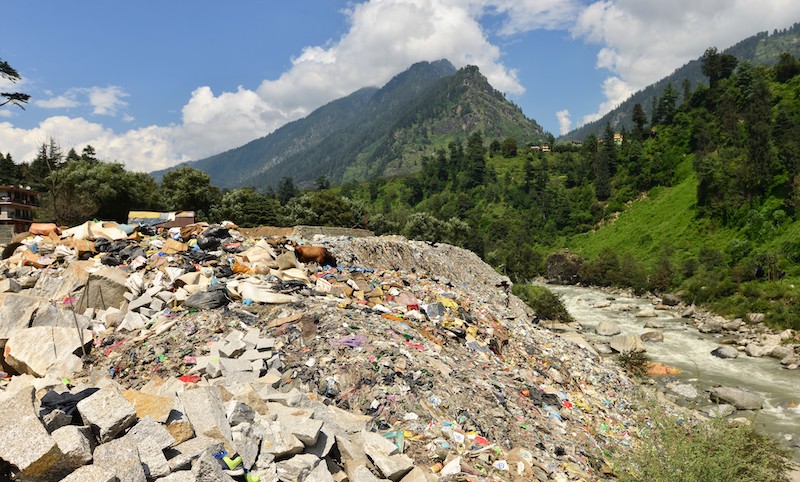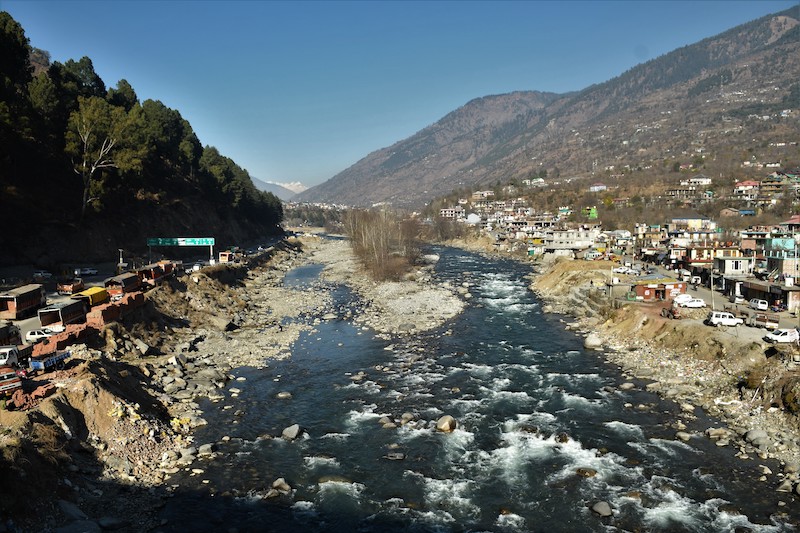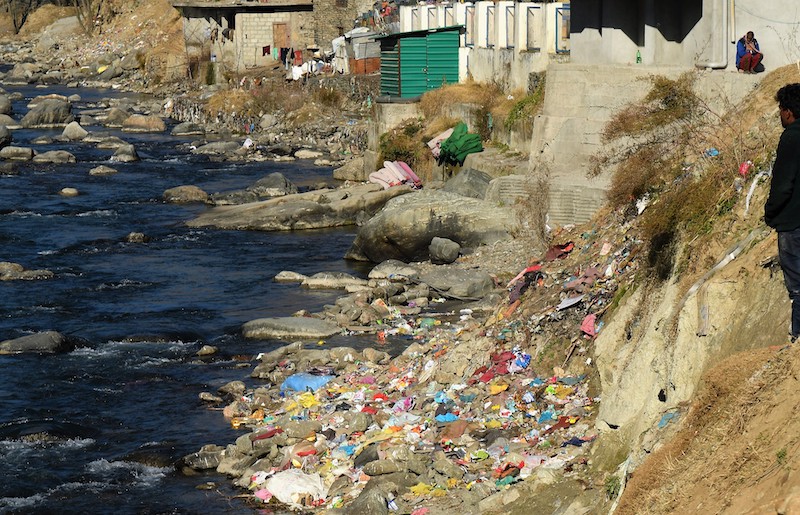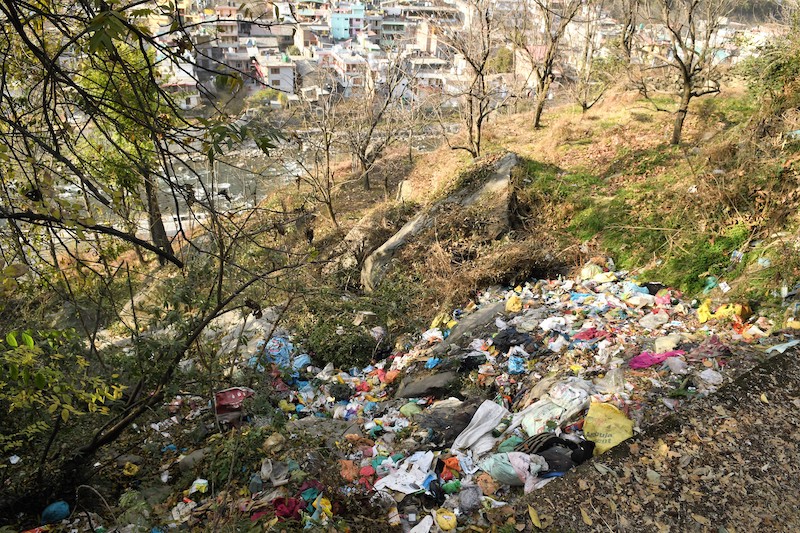Himalayan rivers were known for their fresh and drinkable water some twenty years ago. There was a time when people could straightaway drink water from the flowing river. Beas is one such river in Himachal Pradesh, which is a live river with fresh water. Beas originates from Beas Kund, the most picturesque trek beyond Manali.

Kullu and Manali being the most sought-after tourist destinations in northern India attract hordes of domestic as well as international tourists. Managing such an influx of tourists with limited infrastructure is a herculean task. The Beas, which is the most sacred river in Kullu valley, has become a dumping ground for waste in the last few years.

Waste in the form of plastic bags, shopping bags, and one -time use plastic can be seen on the banks of the river. Most of the nallas, and khuds which ultimately culminate their journey by meeting the river during heavy rains bring enough waste material, which was earlier dumped in the nallas.
The quality of river water is affected to such an extent that it ruins the river ecosystem. River Beas has some of the finest rainbow trout in the world. Plastic waste is making it difficult for these fish to survive happily. Chemicals released from the plastic waste poison the river water and imbalance the ecology of the river .low-density polyethylene (LDPE) is the most dangerous of all. It releases enough harmful chemical compounds into the water.

The health of the rivers is solely dependent upon how we treat them. What we throw in them. River Beas needs to be declared a heritage river of Himachal Pradesh. Municipal corporations and even Panchayats which fall around the path of this holy river need to take strict action against the industry and inhabitants who throw waste material in the free-flowing river.

Villages around the river need to be tutored in not throwing garbage into the river. Solid waste management plants need to be put in place. so that heaps of garbage could be sorted and processed. Tourists should be forbidden from throwing plastic bags, pouches, napkins, sanitary napkins, and plastic shopping bags into the flowing rivers. Clean and happy rivers will add to the healthy ecosystem of the Himalayas.
Ramesh Pathania is a Freelance Journalist with keen interest about issues related to the Environment and Development



